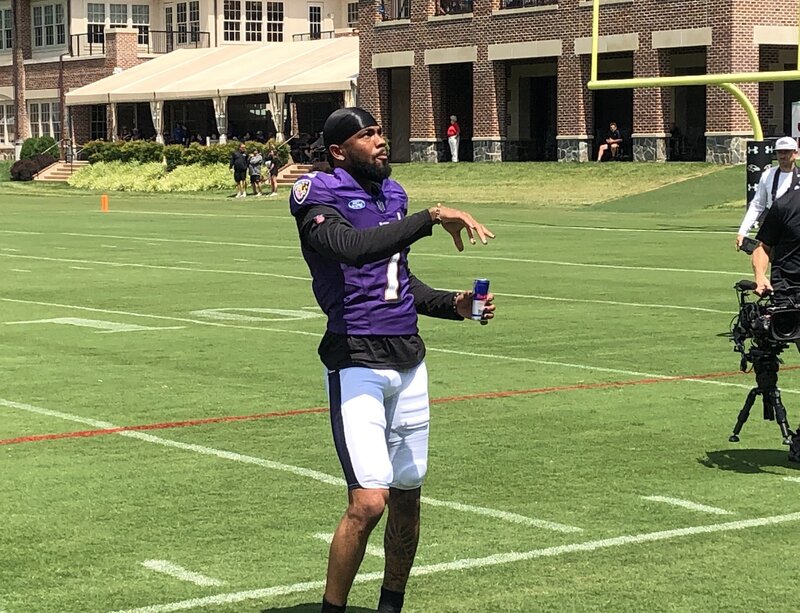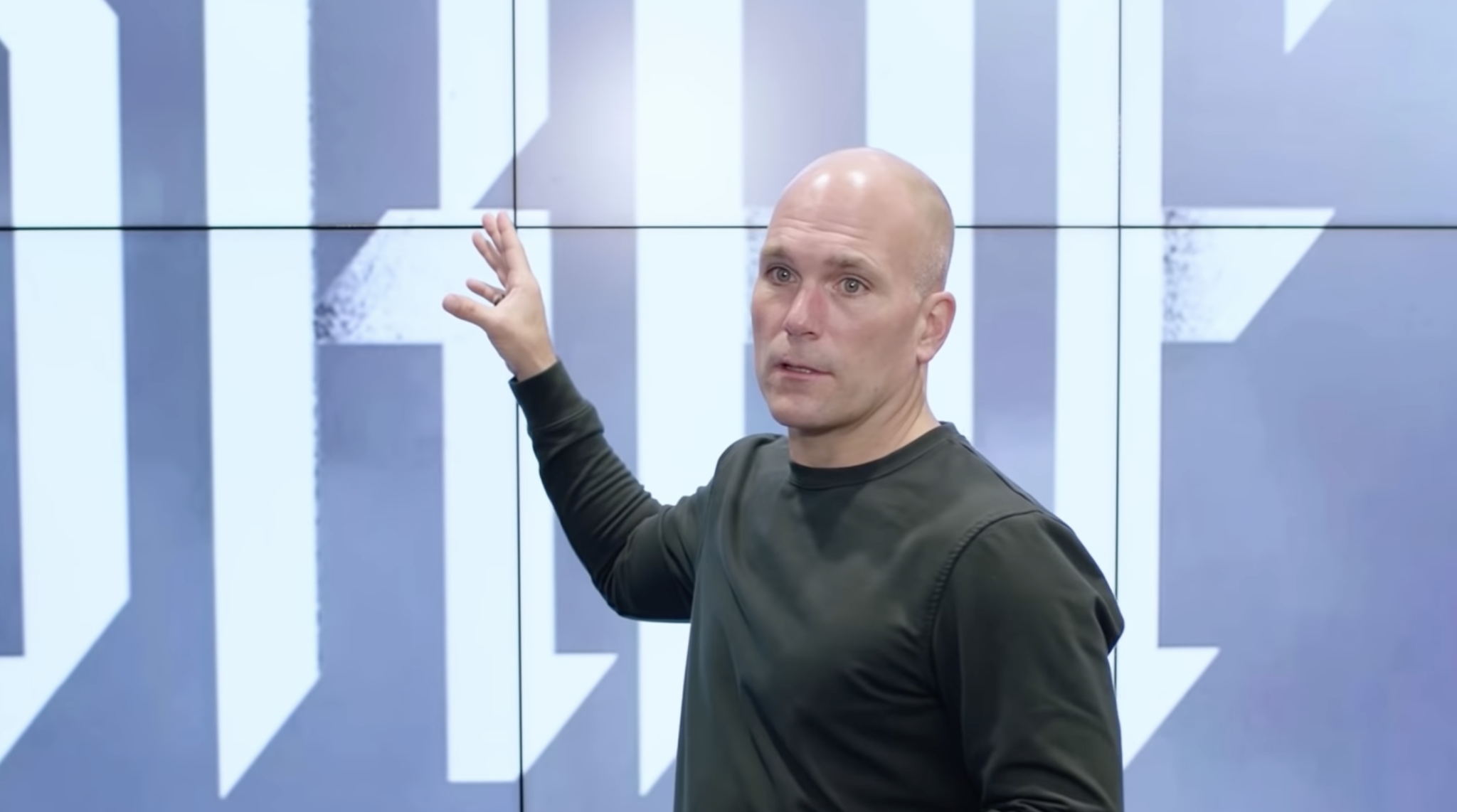OWINGS MILLS, Md. — Lamar Jackson and the Ravens have already played quite the slate of quarterbacks from a storyline perspective this season.
Jackson has faced off against fellow Heisman Trophy winners (Kyler Murray and Baker Mayfield), the reigning league MVP (Patrick Mahomes), one of the most accomplished dual-threat quarterbacks in NFL history (Russell Wilson), and arguably the greatest quarterback of all time (Tom Brady). But Houston’s Deshaun Watson might be the closest contemporary to the one-of-a-kind Jackson in terms of skill set, making Sunday’s showdown between the AFC North-leading Ravens and the AFC South-leading Texans — currently the No. 2 and No. 3 seeds in the conference respectively — that much more exciting.
These former ACC rivals met once before in one of college football’s best games in recent memory in which Watson and No. 5 Clemson edged Jackson and No. 3 Louisville in a 42-36 shootout in 2016. Watson threw for 306 yards and five touchdowns and rushed for 91 yards in that instant classic while Jackson passed for 295 yards and a touchdown and ran for 162 yards and two touchdowns.
“He was just dicing us down the field,” recalled Jackson, who lamented his Cardinals offense falling one yard shy of a first down inside the red zone on the final drive. “Our defense did great, don’t get me wrong. Our defense played a great game, but he was just doing Deshaun Watson things — scoring touchdowns, making incredible throws. They came out with the victory.”
Watson would lead Clemson to a national championship by season’s end while a 19-year-old Jackson became the youngest player to ever win the Heisman Trophy that December. And after proving wrong a list of doubters that included multiple quarterback-needy teams passing on them in their respective drafts years, Watson and Jackson meet again as MVP candidates in what Ravens defensive coordinator Wink Martindale is calling “one of those NFL history games” in this new age of dual-threat quarterbacks.
That’s not to say Watson and Jackson are the same exact player, of course.
The 24-year-old Watson only fell to 12th overall in the 2017 draft and threw an amazing 19 touchdowns in his first seven games before an ACL tear sustained in practice cruelly ended his rookie campaign. Jackson, 22, faced much harsher scrutiny a year later with some even suggesting he change positions and virtually every team in the league passing on him — including the Ravens — before Baltimore traded back into the first round to select him 32nd overall. While Watson was an overnight sensation whose only hiccup over his first three years has come via injury, Jackson intially had to wait his turn behind longtime starter Joe Flacco as a rookie and has shown eye-opening improvement as a passer in his second year, making his loudest doubters look very foolish.
Thanks in part to a higher volume of opportunities and an all-world wide receiver in DeAndre Hopkins, Watson maintains the edge as a passer in terms of both conventional numbers and ESPN QBR’s pure passing expected points added metric, but Jackson owns a better passing grade from Pro Football Focus through Week 10. In terms of yards per attempt, Watson’s 8.1 barely edges Jackson’s 8.0, reinforcing the gap being smaller than you’d think when looking only at completion percentage and counting numbers.
We know Jackson has no equal as a record-setting rushing quarterback in today’s game, but Watson surprisingly has a slightly better PFF run grade entering Week 11, which needn’t be taken as a contrarian viewpoint as much as a reflection of his own ability to make plays with his legs — even while lacking the same speed or penchant for running as the Ravens quarterback. Jackson leads the NFL at a whopping 6.6 yards per carry, but Watson ranks fourth at 5.4 yards per rush among those with at least 50 carries.
Watson’s impressive consistency over 32 career games and Jackson’s tremendous leap in his second season have essentially left the two on a level playing field in the present. One can make the “Coke or Pepsi” pick in terms of preferring a more polished passer with very good mobility or the lesser — but rapidly improving — thrower with transcendent rushing ability.
Either way, there’s nothing fair about it for defenses having to account for their kind of dual-threat ability that’s changing the NFL.
“Peyton Manning was extremely hard to defend. Tom Brady is hard to defend. But neither one of them could run a 4.3 [40-yard dash],” ninth-year cornerback Jimmy Smith said. “You don’t have to worry about tackling them on any given play. There’s nothing more backbreaking for a defense than to keep an offense at third-and-10 or third-and-15 and a freaking quarterback just takes it with his legs and gets a first down and extends a drive. It just hurts. These types of quarterbacks can do that now days.
“It’s just basically the whole college offense transitioning to the NFL. It’s kind of great to see actually.”
Three years after squaring off as the two best players in college football, Jackson and Watson will again be starring on the same field. This week, Jackson referred to Watson as “Brodie” — a term of endearment — while the Texans quarterback described himself as a “proud friend” watching the quarterback who edged him out for the Heisman Trophy silence his critics, speaking to their affection for one another. On Thursday, both were nominated by their teammates for the 2019 Art Rooney Sportsmanship Award, a reflection of their character and leadership ability at such young ages.
Jackson and Watson are changing the game, making you believe what they did in their first meeting at the collegiate level three years ago was only scratching the surface. Whoever comes out on top this time around could be making a loud statement in the MVP race.
“We’re just doing our thing,” Jackson said. “We’re just playing ball, having fun, doing what all of us have done since we were kids, doing something we love. That’s all.”










